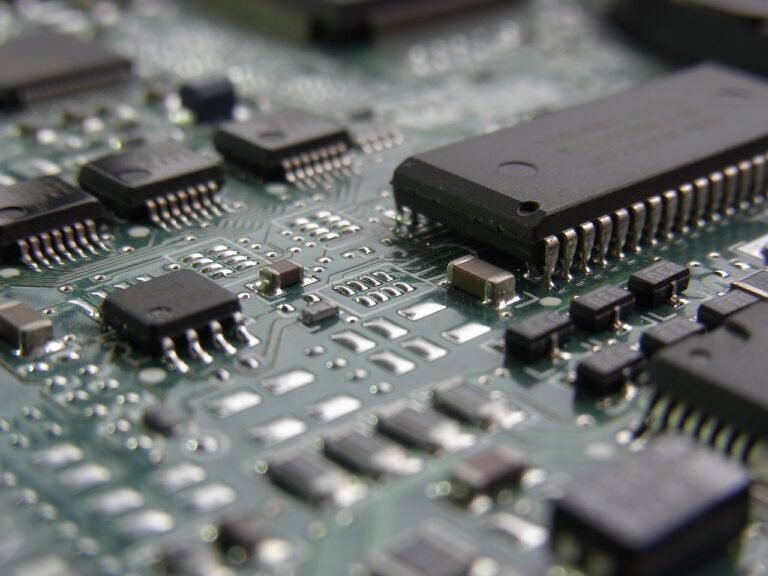
Introduction
Artificial intelligence is rapidly transforming industries, making our devices smarter, our lives more convenient, and our work more efficient. As AI technology continues to advance, it’s essential to stay informed about the latest trends and innovations that are driving this transformation. In this post, we’ll dive into some of the most exciting AI developments, how they’re shaping the future, and why they matter.
1. Natural Language Processing (NLP) Gets Even Smarter
Natural Language Processing has made leaps in recent years, enabling machines to understand, interpret, and generate human language with impressive accuracy. This has led to remarkable innovations:
- Conversational AI and Chatbots: Chatbots are becoming more sophisticated, handling complex customer service inquiries and assisting with tasks like appointment scheduling and troubleshooting. Powered by advances in NLP, these bots are becoming more human-like, improving user experiences across various industries.
- Language Translation and Multilingual AI: NLP advancements are breaking down language barriers. AI-powered translation tools are now capable of delivering near-real-time translations with greater accuracy, making global communication more accessible and seamless.
2. Generative AI and Content Creation
Generative AI, which creates new content from scratch, is one of the most exciting areas of AI development:
- AI Art and Music Creation: Tools like DALL-E and ChatGPT are making headlines by generating art, music, and even poetry. These tools are giving artists new ways to experiment and inspiring creativity across mediums.
- Automated Content Production: Generative AI is also making strides in writing, allowing for the automated creation of articles, product descriptions, and even entire books. This technology can streamline content production, making it easier for businesses to generate high-quality, tailored content at scale.
3. AI-Powered Personalization
AI is enhancing personalization in ways that make user experiences more engaging and relevant:
- Recommendation Systems: Companies like Netflix, Amazon, and Spotify are constantly refining their recommendation algorithms. By analyzing user behavior, AI can suggest content, products, or services that are highly relevant to individual preferences, boosting user satisfaction and engagement.
- Tailored Marketing and Advertising: Marketers are leveraging AI to create highly personalized ad campaigns. With AI-driven insights, businesses can deliver the right message to the right audience at the right time, improving conversion rates and customer loyalty.
4. Autonomous Systems and Robotics
AI-driven automation is expanding beyond traditional robotics, impacting areas from manufacturing to everyday life:
- Self-Driving Vehicles: Autonomous cars are becoming increasingly capable, with major players like Tesla, Waymo, and others advancing their technology. Self-driving cars promise safer roads, reduced traffic, and increased convenience, although regulatory and ethical considerations remain.
- AI in Manufacturing: Robotics and AI are streamlining manufacturing processes by automating repetitive tasks, optimizing production lines, and reducing downtime. This not only improves efficiency but also allows for the customization of products on a larger scale.
5. AI for Enhanced Security and Privacy
As cyber threats grow, AI is playing a critical role in protecting data and ensuring privacy:
- Predictive Threat Detection: AI-powered systems can analyze patterns in real-time, identifying potential threats before they escalate. This predictive capability allows organizations to respond swiftly to cyber-attacks, minimizing damage and protecting sensitive information.
- Data Anonymization and Privacy Preservation: AI is also helping to safeguard user data. Technologies like federated learning allow AI models to be trained on decentralized data, keeping personal information private and secure.
6. Edge AI: Processing at the Source
Edge AI enables data processing closer to the source, reducing latency and enhancing performance:
- Smart Devices and IoT: With Edge AI, devices like smartphones, wearables, and home assistants can process data locally. This allows for faster responses and reduced reliance on cloud computing, enabling real-time interactions with lower energy consumption.
- Industrial Applications: Edge AI is also transforming industries like healthcare, manufacturing, and agriculture by enabling real-time data analysis directly at the site of collection. This improves decision-making and operational efficiency.
7. AI for Social Good
AI has immense potential to address pressing social challenges and contribute to the greater good:
- Healthcare Advancements: AI is revolutionizing healthcare by enabling early diagnosis, optimizing treatment plans, and assisting in complex surgeries. It’s also being used to track and predict the spread of diseases, as seen with COVID-19, to help prepare and protect communities.
- Environmental Impact and Sustainability: AI-driven systems are helping to monitor climate change, optimize energy use, and reduce waste. Innovations in AI are supporting conservation efforts, from tracking endangered species to managing natural resources more effectively.